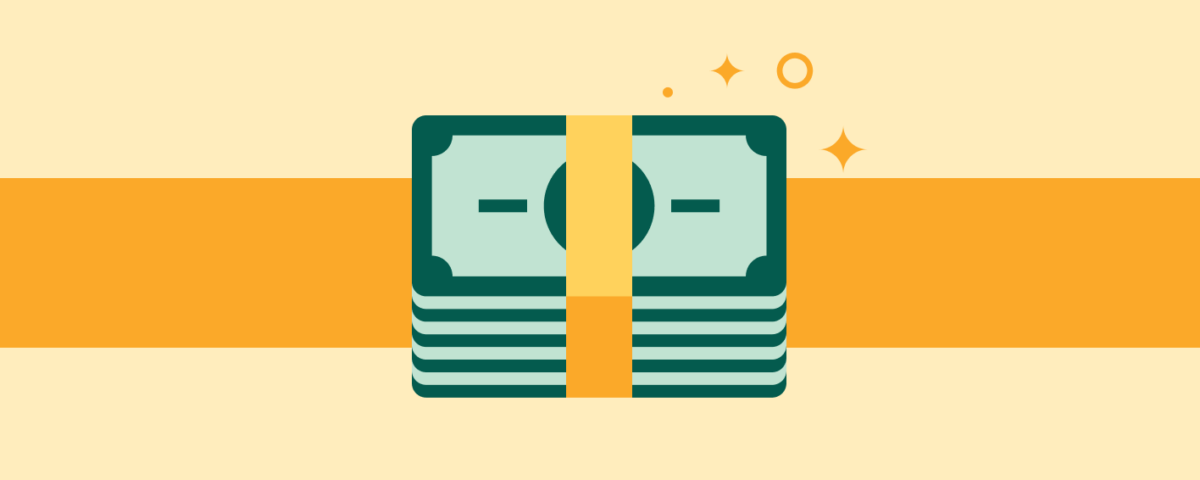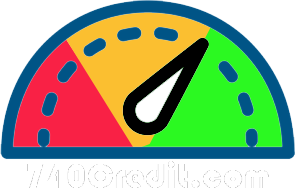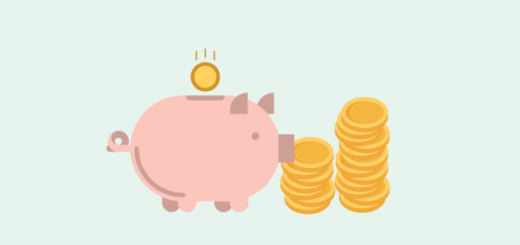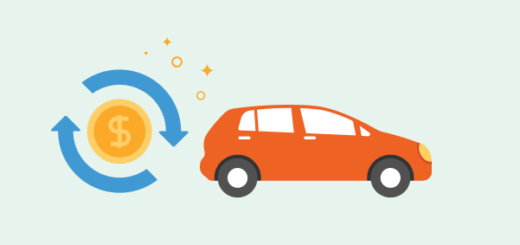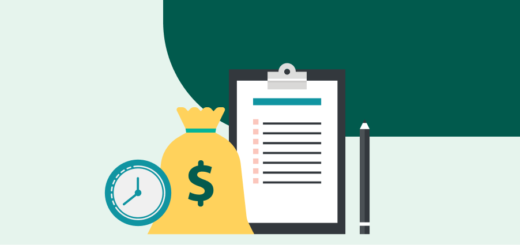How Does Debt Consolidation Work?
Our goal is to give you the tools and confidence you need to improve your finances. Although we receive compensation from our partner lenders, whom we will always identify, all opinions are our own. Credible Operations, Inc. NMLS # 1681276, is referred to here as “Credible.”
Dealing with a large amount of debt can be overwhelming, especially if you have several monthly payments to keep track of. But if you have debt to manage, you’re not alone — as of 2021, U.S. adults carry an average of $25,112 in non-mortgage debt, according to Experian.
The good news is that there are a few strategies that could help you pay off your debt more easily. One option to consider is consolidating your debt, which will leave you with a single loan and more manageable payment.
If you’re wondering how debt consolidation works, here’s what you should know:
How does debt consolidation work?
Debt consolidation is the process of taking out a personal loan to pay off your old debts, leaving you with just one loan and payment to keep track of. Depending on your credit, you might get a lower interest rate on this new loan than what you’re currently paying — which could save you money on interest and even potentially help you pay off your debt faster.
Or you could opt to extend your repayment term to reduce your payments and lessen the strain on your budget — though keep in mind that this also means you’ll pay more in interest over time.
How to qualify for a debt consolidation loan
While eligibility criteria for a debt consolidation loan can vary by lender, there are a few common requirements you’ll likely come across, including:
- Good credit: You’ll typically need good to excellent credit to qualify for a personal loan for debt consolidation — a good credit score is usually considered to be 700 or higher. There are also several lenders that offer debt consolidation loans for bad credit, but these loans tend to come with higher interest rates compared to good credit loans.
- Verifiable income: Some lenders have a minimum income requirement while others don’t — but in either case, you’ll likely need to show proof of income.
- Low debt-to-income ratio: Your debt-to-income (DTI) ratio is the amount you owe in monthly debt payments compared to your income. You’ll generally need a DTI ratio no higher than 40% to get approved for a personal loan — though some lenders might require lower ratios than this.
Even if you don’t need a cosigner to qualify, having one could get you a lower interest rate than you’d get on your own.
If you decide to take out a personal loan to consolidate debt, be sure to shop around and compare as many lenders as possible. This way, you can find the right loan for your needs.
Credible makes this easy — you can compare your prequalified rates from our partner lenders in the table below in two minutes.
| Lender | Fixed rates | Loan amounts | Min. credit score | Loan terms (years) | Cosigners allowed? |
|---|---|---|---|---|---|
 |
9.95% – 35.99% APR | $2,000 to $35,000** | 550 | 2, 3, 4, 5* | No |
|
|||||
 |
6.79% – 17.99% APR | $10,000 to $50,000 | 700 | 3, 4, 5, 6 | No |
|
|||||
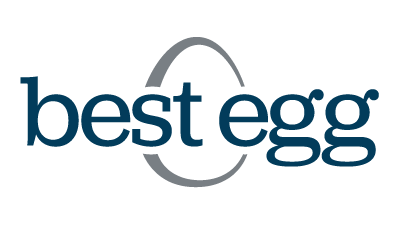 |
4.99% – 35.99% APR | $5,000 to $35,000 | 600 | 3, 5 | No |
|
|||||
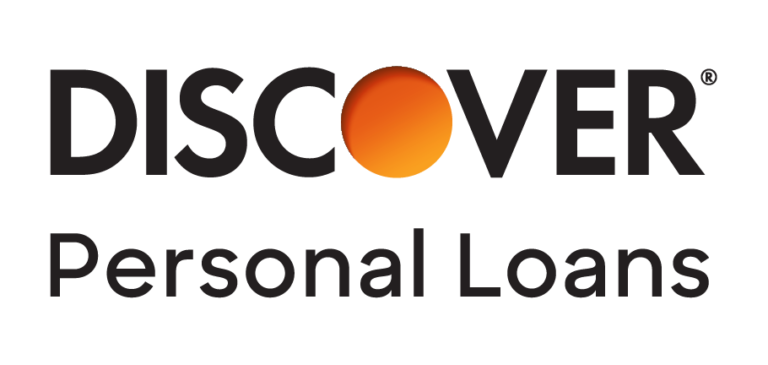 |
5.99% – 24.99% APR | $2,500 to $35,000 | 660 | 3, 4, 5, 6, 7 | No |
|
|||||
 |
7.99% – 29.99% APR | $10,000 to $50,000 | Not disclosed by lender | 2, 3, 4, 5 | Yes |
|
|||||
 |
7.04% – 35.89% APR | $1,000 to $40,000 | 600 | 3, 5 | Yes |
|
|||||
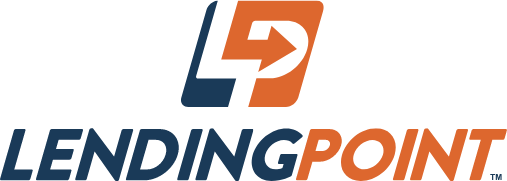 |
9.99% – 35.99% APR | $2,000 to $36,500 | 580 | 2, 3, 4 | No |
|
|||||
 |
2.49% – 19.99% APR | $5,000 to $100,000 | 660 | 2, 3, 4, 5, 6, 7 (up to 12 years for home improvement loans) |
Yes |
|
|||||
| 6.99% – 19.99% APR1 | $3,500 to $40,0002 | 660 (TransUnion FICO®️ Score 9) |
3, 4, 5, 6, 7 | No | |
|
|||||
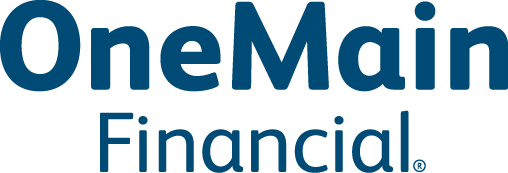 |
18.0% – 35.99% APR | $1,500 to $20,000 | None | 2, 3, 4, 5 | Yes |
’ |
|||||
 |
5.99% – 17.99% APR | $600 to $50,000 (depending on loan term) |
660 | 1, 2, 3, 4, 5 | No |
|
|||||
 |
6.95% – 35.99% APR | $2,000 to $40,000 | 640 | 3, 5 | No |
|
|||||
 |
4.74% – 19.28% APR10 | $5,000 to $100,000 | Does not disclose | 2, 3, 4, 5, 6, 7 | Yes |
|
|||||
 |
8.93% – 35.93% APR7 | $1,000 to $50,000 | 560 | 3 to 5 years 8 | No |
|
|||||
 |
5.94% – 35.97% APR | $1,000 to $50,000 | 560 | 2, 3, 5, 6 | No |
|
|||||
 |
4.37% – 35.99% APR4 | $1,000 to $50,0005 | 580 | 3 to 5 years4 | No |
|
|||||
| Compare rates from these lenders without affecting your credit score. 100% free!Compare Now |
|||||
| All APRs reflect autopay and loyalty discounts where available | LightStream disclosure | 10SoFi Disclosures | Read more about Rates and Terms | |||||
Common ways to consolidate debt
There are several kinds of loans that can be used to consolidate debt. Keep in mind that the right choice for you will depend on your unique situation as well as your financial goals.
Personal loan
A personal loan is a type of installment loan that’s taken out as a lump sum and paid back in equal installments over time. With a personal loan, you can typically borrow anywhere from $600 to $100,000 with repayment terms from one to seven years, depending on the lender.
Pros
- Fixed payments: Personal loans typically come with fixed interest rates, which means your payments will stay the same throughout the life of your loan.
- Could lower your interest rate: Depending on your credit, you might qualify for a lower interest rate on a personal loan than what you’re currently paying. Personal loans also tend to have lower interest rates compared to other options like credit cards.
- Might reduce your payments: If you opt to extend your repayment term, you could get a lower, more affordable monthly payment. Just remember that choosing a longer term means you’ll pay more in interest over time, though.
Cons
- Fewer options for bad credit: You’ll generally need good to excellent credit to qualify for a personal loan. This means you could have a hard time getting approved if you have poor or fair credit.
- Might come with fees: Some personal loan lenders charge fees, such as origination fees or late fees. These can increase your overall loan cost. Keep in mind that if you take out a loan with one of Credible’s partner lenders, you won’t have to worry about prepayment penalties.
- No rewards or perks: Unlike options like credit cards, personal loans don’t provide any rewards or perks.
Learn More: Debt Consolidation vs. Personal Loan: What Is the Difference?
Balance transfer card
Another option for consolidating debt is with a balance transfer card. This is a type of credit card that you use to transfer your balance from one card to another.
Keep in mind that how much you’ll actually be able to consolidate with a balance transfer card will depend on your card issuer and the limit you’re given.
Pros
- 0% APR: Some balance transfer cards come with a 0% APR introductory period, which means you could avoid paying interest if you repay your balance before this period ends. However, if you can’t pay off the card in time you could get stuck with some hefty interest charges.
- Might come with rewards or perks: Depending on the card you choose, you might have access to rewards or perks, such as cash back or travel points.
- Can help you establish credit: By consistently making on-time payments on your card, you could see an improvement in your credit over time.
Cons
- Fees: You’ll usually have to pay a balance transfer fee, which is typically 3% to 5% of the amount you want to transfer.
- Higher interest rates: Following a 0% APR period, the rates on balance transfer cards can be higher compared to other options like personal loans.
- Could lead to more debt: While a balance transfer card can be used for debt consolidation, it’s still another credit card. For some people, it could be tempting to use your new card to rack up more debt.
Check Out: Credit Card Consolidation Loans
401(k) loan
If you have money stashed away in a 401(k), you could consider borrowing from it to consolidate your debt. With a 401(k) loan, you can generally borrow up to 50% of your vested account balance or $50,000, whichever is less.
As long as you pay this money back according to the loan terms, you can avoid having the 10% penalty that typically comes with early retirement account withdrawals. You’ll typically have up to five years to repay a 401(k) loan.
Pros
- No credit check: Unlike most other loans, 401(k) loans don’t require a credit check.
- Doesn’t affect your credit: A 401(k) loan won’t be reported to the credit bureaus, which means it won’t impact your credit score.
- Lower interest rates: Depending on your credit, the interest rate on a 401(k) loan could be lower than what you’d get on a personal loan. Additionally, the interest you pay will be added to your 401(k) — meaning you could end up with a higher retirement savings balance than what you started with.
Cons
- Loss of investment gains: By taking money out of your 401(k) account, you’ll be missing out on the overall investment gains you would have had. Also keep in mind that because interest rates on 401(k) accounts tend to be low, you might not pay enough back in interest to make up for the lost gains.
- Limited loan amounts: You can only borrow up to 50% of your vested balance or $50,000, whichever is less. If you have a large amount of debt to consolidate, this might not be enough.
- Employment requirements: You must remain employed with the employer that sponsors your 401(k) until your loan is paid back — meaning you could end up stuck in your job. And if you’re laid off before repaying the loan, you’ll have to pay the entire loan back the following year or end up facing taxes and penalties.
Learn More: Debt Consolidation vs. Bankruptcy: How to Choose
Alternative option: Debt management plan
Unlike other options, participating in a debt management plan doesn’t pay off your debts with a new loan. Instead, you’ll work with a nonprofit debt counseling agency — such as the National Foundation for Credit Counseling — to set up a payment plan with your creditors.
Once this plan is in place, you’ll make monthly payments to the agency, which will send the funds directly to your creditors. This will continue until your debts are paid off — typically within five years or less.
Pros
- Waived finance charges or fees: Some creditors might be willing to waive finance charges or fees as well as potentially lower your monthly payments if you sign up for a debt management plan.
- Could help your credit: If you make all of your payments on time and successfully pay off your debts, you could see an improvement in your credit.
- Less contact with creditors: Your credit counselor will negotiate with your creditors on your behalf. Additionally, if any of your accounts have been sent to collections, signing up for a debt management plan should get the collection agencies to stop calling — however, this could take up to several months while the paperwork is processed.
Cons
- Could come with fees: Depending on the agency you work with, you might have to pay fees for a debt management plan. These typically include an initial setup fee as well as monthly fees.
- Might not include all of your debts: Some loans generally aren’t eligible for debt management plans, such as secured debts and certain unsecured debts like student loans.
- Loss of credit cards: You’ll typically have to close any credit cards included in a debt management plan, meaning you’ll have less access to credit.
How debt consolidation affects credit scores
If you apply for a new loan to consolidate your debt, the lender will perform a credit check to determine your creditworthiness. This could cause a slight drop in your credit score — though this is usually only temporary and your score will likely bounce back within a few months.
Additionally, debt consolidation could actually end up helping your credit. For example, if you make on-time payments on your new loan, you see an improvement in your credit score over time. Ultimately, the positive effects of a debt consolidation loan on your credit could far outweigh any initially negative impact.
Check Out: How Debt Consolidation Loans Can Help Your Credit Score
When debt consolidation makes sense
While consolidating your debt might be a good idea in some cases, it isn’t the right move for everyone. Here are a few instances where taking out a debt consolidation loan could make sense:
You want to reduce the number of monthly payments you have
Managing multiple payments with their own due dates can be difficult. By consolidating your debt, you’ll have just one monthly payment to worry about.
You have a decent credit score that might qualify for a low interest rate
If you have good to excellent credit, you might qualify for a lower interest rate than what you’re currently paying. This could save you money on interest as well as potentially help you pay off your debt faster.
You’re focused on controlling your spending
It can be easy to get in the habit of swiping your credit cards without thinking while continuing to make only the minimum required payments.
If you want to take control of your debt, a debt consolidation loan could help — but you’ll also need to build and commit to better spending habits so you won’t end up in the same situation again.
When debt consolidation doesn’t make sense
And here are some scenarios where debt consolidation might not be the best idea:
You have a small amount of debt that can be repaid quickly
If you can quickly pay off your debts, going through the trouble of consolidating them likely won’t be worth it, especially if it comes with fees. Instead, it’s probably a better idea to simply focus on repaying your debt as soon as you can.
Your credit score may prevent you from qualifying for a lower interest rate
You’ll generally need good to excellent credit not only to be eligible for a debt consolidation loan but also to qualify for a favorable interest rate. If you have poor or fair credit, you might have a hard time securing a decent rate — or even getting approved for a loan at all.
You’re not ready to change your spending habits
For debt consolidation to be worthwhile, you have to avoid racking up more debt. If you’re unable to give up your old spending habits, then it’s probably better to wait on consolidation.
If you decide to take out a personal loan to consolidate debt, remember to consider as many lenders as you can to find the right loan for you. This is easy with Credible: You can compare your prequalified rates from multiple lenders in two minutes — without affecting your credit.
Ready to find your personal loan?
Credible makes it easy to find the right loan for you.
Find My Rate
Checking rates won’t affect your credit
